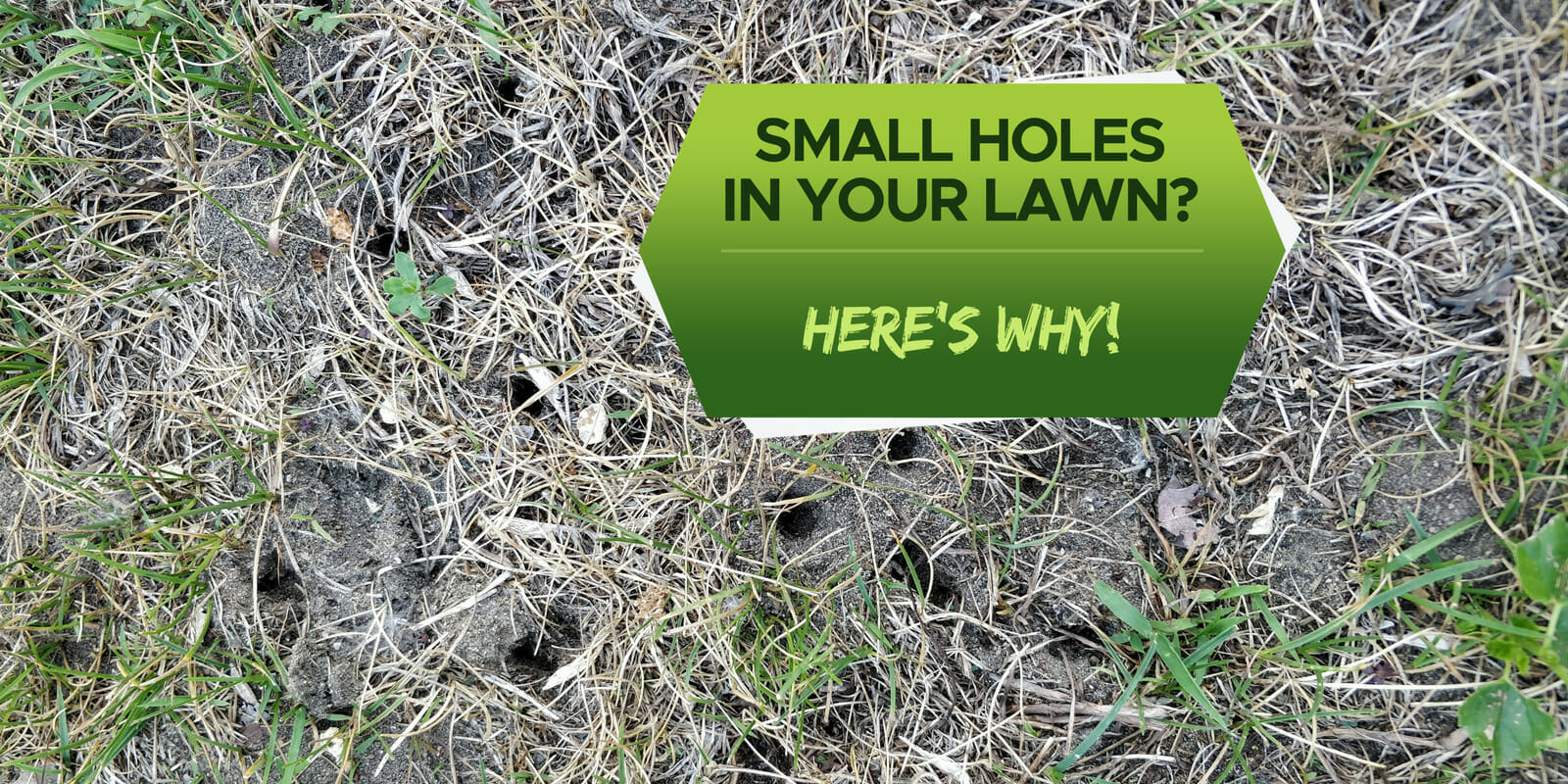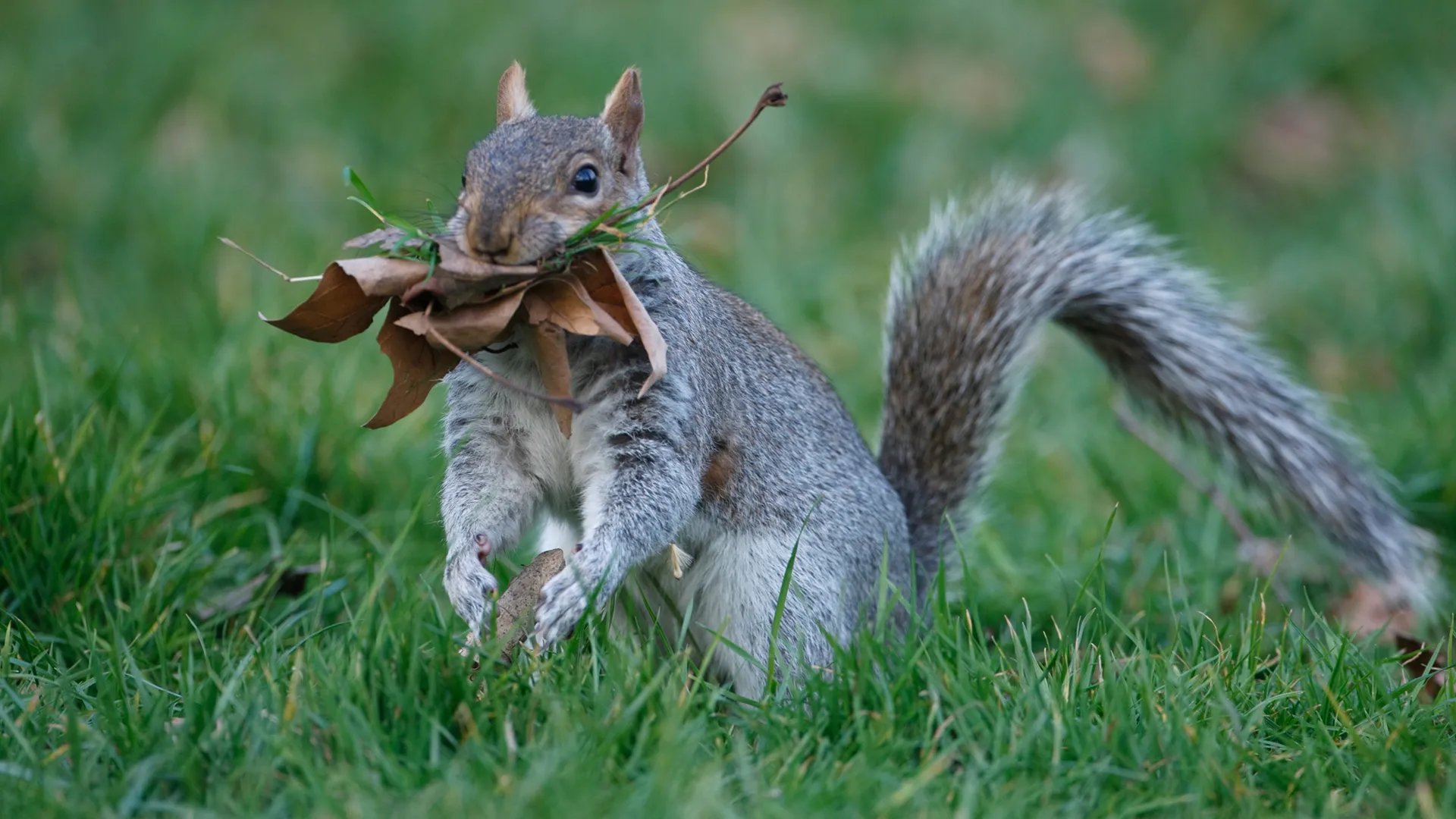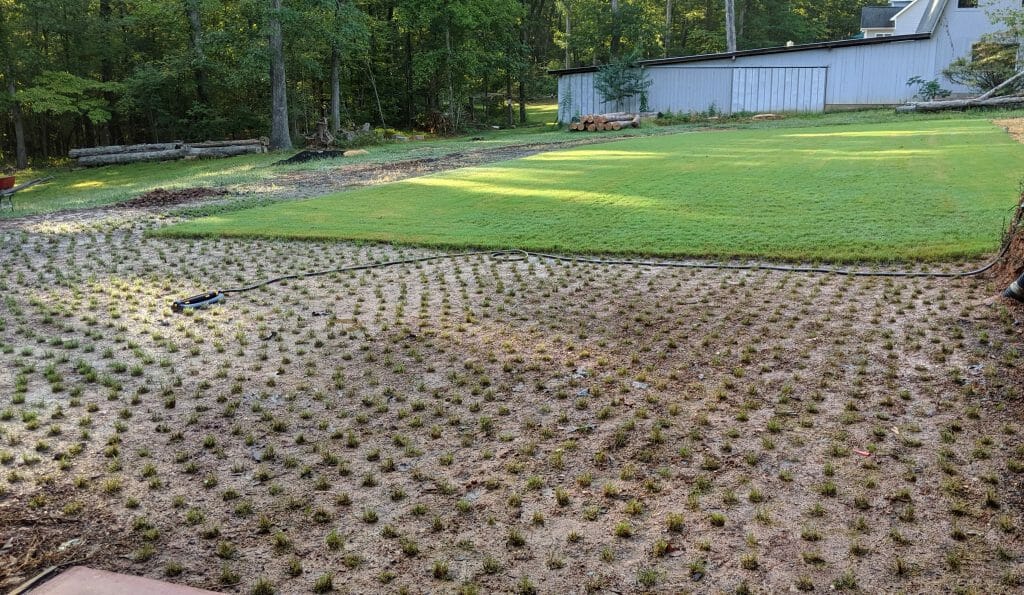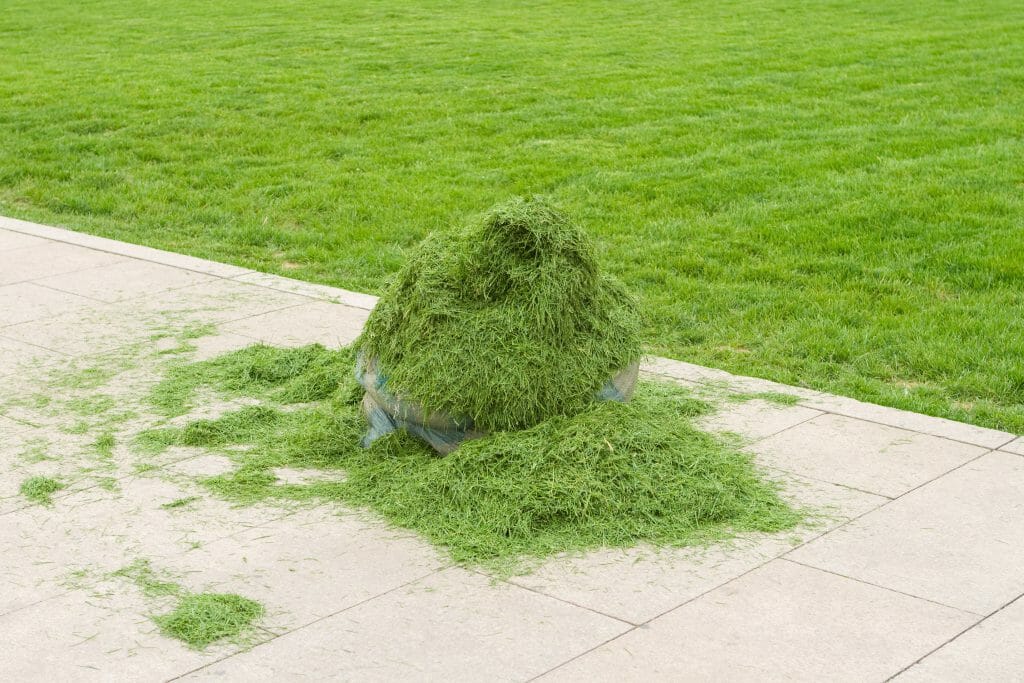Have you ever woken up and decided to take a walk in the garden, only to discover that your lawn is full of small holes?
This can make your lawn look messy and unattractive as well as take time to fill, so why exactly does this happen?
The cause of the small holes all over your lawn is most likely a pest like a rodent or an insect digging or burrowing
Yes, insects and rodents, the bane of the gardener’s existence, strikes again! Dealing with creatures like this can be endlessly frustrating, but don’t worry; we are here to help!
In this article, we will look at what might be causing the small holes in your lawn and give you some tips to stop this from happening to you in the future.
Why Are There Small Holes in My Lawn That Appear Overnight?
The main reason that small holes appear in your lawn is pests like rodents or insects digging and burrowing in the grass to build homes or look for food.
These sneaky critters come out at night when you and your pets are safe in bed and reak havoc on your lawn while you’re none the wiser. Due to their nocturnal activities, it can be tough to tell what creature is specifically causing the issue.
The trick to figuring out which animal is destroying your lawn is to take note of the specifics of the damage. You need to take into consideration hole size, soil disruption, the number of holes, and any damage below the surface to be able to nail down what creature you’re dealing with.
Many small animals and insects could be responsible for this, so we have chosen a selection of the most common culprits to look at today:
Squirrels
Squirrels are very cute but can be very frustrating to have in your garden. Not all squirrels dig; however, the Eastern Grey squirrel is the species that is most likely to cause you issues.
They prefer softer soil and garden beds, but they have been known to dig in lawns with moist soil. The holes will be shallow divots rather than deep holes.
The bushy-tailed creatures mainly cause aesthetic damage to your lawn rather than deeper issues underground.
Moles
Moles are notorious lawn ruiners because of their burrowing activities. They are small, blind rodents that spend most of their lives underground in moist, well-drained soil.
Mole holes are about 2 inches in diameter and are accompanied by a domed mound of earth.
They can pop up all over a small area and will cause a lot of damage below the surface of your lawn. If you think you may have moles, we recommend carefully surveying your lawn to identify any areas that might be caving in and need attention.
Gophers
Very similar to moles, gophers are small burrowing rodents that can cause a lot of damage beneath your lawn as well as on top. Their holes are often confused with mole holes.
Gopher holes are deep and crescent-shaped with small dirt mounds beside them.
The reason gophers dig is to get at their food source, grassroots. Luckily, they are easily deterred by using scents that they find unappealing.
Voles
If you are noticing slightly smaller holes in your lawn, then voles might be the guilty party.
They dig holes that are around 1-2 inches in diameter that will be accompanied by small dropping and chewed grass around the edges of the opening. They will also create interlocking ‘runways’ that will cover the surface of your lawn.
Voles can be incredibly destructive because they breed all year round and have many babies in large litters so nipping an infestation in the bud is very important. They enjoy living in overgrown grass and weeds so keeping your garden neat is key when dealing with voles.
Digger Bees
It’s not just rodents that could be destroying your lawn; insects like digger bees may also be guilty. Many species of bees do this, but all of them are relatively docile and won’t sting unless directly threatened.
These bees enjoy digging in dry soil and areas of sparse grass to nest. Their holes will be small with a little mound of dirt beside them.
Bees are essential pollinators that any gardener should welcome in their gardens, so dealing with them delicately is very important. We recommend avoiding any insecticides that could kill the bees and instead using natural means to move them away from your lawn.
How to Stop Pests Ruining Your Lawn
So, now that we’ve looked at some of the critters that might be roaming your garden, how on earth are you meant to stop them?
Each animal is slightly different, so you will need to change your methods depending on the pest you are dealing with. Here are a few ways you can stop getting these pesky holes in your garden:
| Pest | Prevention |
| Squirrels | Spray garlic around the lawn |
| Moles | Place an underground fence to prevent tunneling |
| Gophers | Pour coffee grounds into the holes or plant natural repellants like daffodils |
| Voles | Spray diluted hot sauce around the area and keep the lawn well mowed |
| Digger Bees | Water your lawn regularly |
Best Way To Fill the Holes in Your Lawn
Besides looking attractive, some holes in your lawn may also indicate burrowing activity beneath the surface. This can cause the lawn to collapse when you walk over it, which could cause injury. That’s why filling in any damaged areas is important before anyone gets hurt.
If the holes are small and shallow, you should be able to fill them with potting soil. We also recommend adding a little cat litter to the holes before filling to deter further digging.
However, if the worst-case scenario has happened and the burrows have caused damage below the surface, you will need to do more extensive excavation. This may even involve digging up portions of the lawn, replacing the soil, and topping that with grass seeds or sheets of turf.
Frequently Asked Questions
What makes 2-inch holes in the ground?
Small holes almost always indicate small rodent activity in your garden.
Moles, voles, chipmunks, and gophers are all small enough to create holes of this size.
What other animals dig small holes at night?
We have covered many animals that may dig holes in your garden, but others could give you trouble depending on your area.
Larger holes and grass disruption could be caused by skunks or raccoons, while smaller holes could be from snakes and other small rodents. Tiny holes after rain indicate earthworm activity, which is an excellent sign for your garden.
The animal you are dealing with will depend significantly on where you live, so knowing about local wildlife is key for your garden and the critters to live in harmony, apart from a few natural deterrents.
Conclusion
Pests like rodents and insects are something that all gardeners must deal with at some point. It’s very frustrating, but, as we have shown you today, there are steps you can take to fix this issue and keep your precious lawn pristine.
We hope this has helped you solve the mystery of why small holes seem to be popping up all over your garden. Using these handy tips, you should be able to keep your lawn pest-free in the most natural way possible, and we can live in harmony with nature’s creatures.






